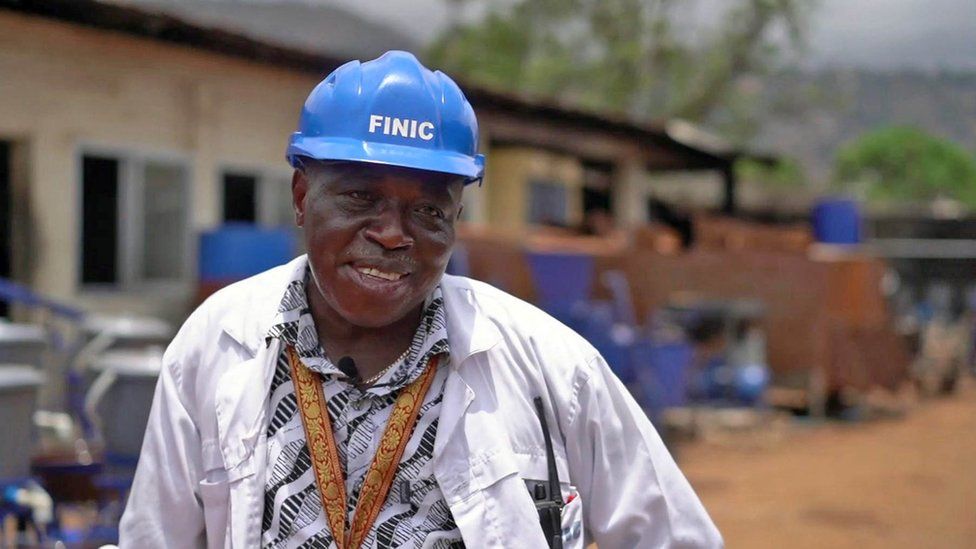By Joseph A. Kamanda
Government in its continuation slaughtering the Local Content policy which mandates made in Sierra Leone manufactured products, ideas, services and innovations should be given the highest preferences in any given competitive procurement processes, Formel Industries and National Industrialization Centre (FINIC) continues to endure sufferings.
This time FINIC keeps enduring pains marginalization in the hands of Local Content policy drivers and implementers at the Ministry of Health and Sanitation, Ministry of Trade and Industry and the Ministry of Agriculture, Forestry and Food Security, who have completely ignored locally designed and manufactured hand washing stations, agro food processing plants and machineries by the indigenous inventor and his industry for that of Millar Group.
Founded in 1997, FINIC is a renowned manufacturer of equipment for the processing of palm oil, fruit juice producers, which stem value addition to local agricultural products. The industry also design and construct rice mills, cassava process machines, palm oil mills, hammer mills, rice threshers, rice de-stoning machines and effective irrigation technologies for inland valley swamps cultivations.
The Managing Director of FINIC, Foday Melvin Kamara in an interview with Forum Newspaper, Tuesday 26th May, 2020 raised series of concerns bordering on neglects of his industry’s products for the sake of Indian fabric manufacturer, Millar Group, which he said contrary to the aspirations of the country’s Local Content Policy.
Kamara cried that despite his industry’s relentless efforts in innovations and use of technologies in manufacturing agricultural food processing machineries, medical equipment and so many others, his products are left in stores whiles government go for Indian Millar Group made fabrics as it is happening now for hand washing stations.
He said all of the hands washing stations at public offices are bought from Millar Group, even though the Indian manufacturer is not a register and certify fabricators but has dashed into the process because of the COVID19 pandemic to make money and to disturb the innovative indigenous manufacturer FINIC, selling its products at very low costs which is adversely affecting FINIC with the aim of getting the local industry out of business.
Despite its sound records for the manufacturing of hospital beds and other medical equipment during the deadly Ebola virus disease outbreak 2015, FINIC’s present innovative ideas in bringing up foot pedal hand washing stations are being deliberately ignored by the government Ministry of Health and Sanitation.
Kamara said government in government out FINIC he has always been neglected by the public sector players including political heads at the Ministries of Trade and Industries, Agriculture Forestry and Food Security and Health and Sanitation for Millar Group products.
“FINIC’s hand washing stations are not at the hospitals and public buildings irrespective of our efforts in innovations and our effective use of technologies, yet government ministries, departments and agencies continue to ignore and neglect our products for those of Millar Group,” he said.
The Managing Director of FINIC said; “I had given up hopes on government for long now. I know government can give me peace, unity, stability, energy and infrastructure but couldn’t work towards promoting my industrialization and innovative ideas.”
He however observed that the Indian Millar Group having exploited Sierra Leoneans, will end up remitting their moneys back to their country, whereas FINIC, the indigenous industries stay back and help support the national economy. The indigenous inventors pointed out these are some of the areas of concerns the ministries of Trade, Agriculture, Forestry and Food Security as well as Health and Sanitation are expected to look into critically.
Kamara underscore the negative impact of COVID19 considering hike prices of essential commodities including staple food rice, amid which FINIC is trying through innovations and the use of technologies to help in its little ways of containing the pandemic.
He thus encouraged government and the relevant authorities to have a rethink about supporting local and indigenous Sierra Leonean industries if we are to win the war on the virus, and over the trouble of food self insufficiencies in the country.
These, Kamara explains is not easily changed; “as we are not ready for industrial development and reforms because we hate each other in whatever comes out of us as a people has to be wrongly interpreted with hate based on politics along regional and tribal lines.
He therefore implores government to help FINIC with the needful support saying; “I think government should support FINIC robustly with the necessary ingredients in sustaining the indigenous industry’s value addition and innovative drives of farm products.
Kamara furthered that even though FINIC is heavily embattled by Millar Group’s unhealthy competitions trying to get his company out of business; yet FINIC continues to invent innovative technologies never made before to push Sierra Leonean farm products to an enviable peak at regional and global food markets. He entreated emerging entrepreneurs and inventors not rely on government for help as it always ends up being mere waste of time and energies.
On how is he coping with the keenly competitive market, Kamara replied, “the plastic manufacturer Millar Group is always trying eliminate FINIC out of business with bad price mechanisms, that is why we have extended our marketing approaches to Ghana, The Gambia, and in other West African countries where FINIC products are now making steady progress.











